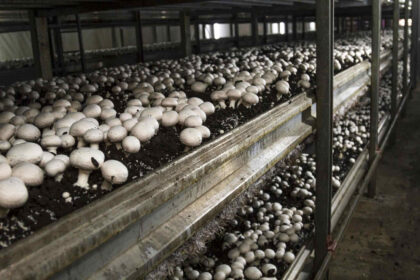In the education coursework stands as a pivotal thread woven into the fabric of academic pursuits. It is a term familiar to students, often uttered in the halls of learning institutions, yet its intricacies and significance may elude many. In this comprehensive exploration, we will unravel the layers of coursework, delving into its definition, purpose, and the role it plays in shaping the educational journey. For those seeking additional support in navigating the complexities of coursework, considering a coursework writing service in UK can provide expert assistance, ensuring a comprehensive and well-crafted academic tapestry.
Contents
Defining The Tapestry
At its core, coursework encapsulates a spectrum of academic activities, assignments, and assessments assigned to students during a course or program of study. It is a composite term, covering a myriad of tasks ranging from written essays and research papers to practical experiments, presentations, and group projects. Coursework is the academic tapestry that stitches together theoretical knowledge and practical application, offering a holistic evaluation of a student’s understanding and mastery of a subject.
From the rigorous research papers of humanities courses to the hands-on experiments of science labs, coursework is a versatile entity that adapts to the unique demands of each discipline. It is not confined to the traditional written assessments but extends its reach to embrace the diverse modalities through which knowledge is tested and demonstrated.
Why Do We Have Coursework?
Coursework, with its multifaceted nature, serves a multitude of purposes in the educational landscape. It is not merely a gauntlet of tasks meant to test a student’s endurance; rather, it is a purposeful thread carefully woven into the educational fabric to achieve specific objectives. One of its primary purposes is to assess a student’s comprehension of the subject matter. Through essays, quizzes, and exams, coursework gauges how well students have grasped the theoretical foundations of a course. This evaluative function provides both students and educators with valuable insights into the progress of learning.
Moreover, coursework is a conduit for the development of critical skills. Whether it involves conducting experiments, solving mathematical problems, or presenting findings, the tasks embedded in coursework foster analytical thinking, problem-solving, and effective communication. The ability to apply theoretical knowledge to practical situations is honed through coursework, preparing students for the challenges they may encounter beyond the classroom.
Types of Coursework
The realm of coursework is vast and diverse, reflecting the rich tapestry of academic disciplines. Understanding the different types of coursework provides a nuanced view of the academic landscape and the varied tasks students encounter during their educational journey.
Written Assignments: This is the quintessential form of coursework, encompassing essays, research papers, reports, and reflective writings. Written assignments serve as a canvas for students to articulate their understanding of a subject, demonstrate research skills, and express their thoughts coherently.
Practical Assessments: For disciplines like science, engineering, and the arts, coursework often extends beyond the written word to embrace practical assessments. These may include laboratory experiments, artistic performances, or design projects. Practical assessments evaluate a student’s ability to apply theoretical concepts in a real-world context.
Presentations and Oral Exams: Coursework also manifests in oral forms, where students are required to present their findings, defend their arguments, or engage in discussions. This modality assesses not only the depth of knowledge but also the communication and presentation skills vital in various professional settings.
Group Projects: Collaborative endeavors are a growing trend in coursework, reflecting the reality of teamwork in professional spheres. Group projects test students’ ability to work cohesively, distribute responsibilities, and synthesize individual contributions into a unified output.
The Evaluation Process
![]()
Coursework is not a unilateral endeavor; it is a dynamic interplay between students and educators, where assessment becomes a crucial facet. The evaluation process embedded in coursework is designed not only to measure the acquisition of knowledge but also to provide constructive feedback, fostering continuous improvement. For students aiming to elevate their coursework to the highest standards, exploring resources such as top 5 research paper writing services can offer valuable insights and guidance in refining their academic pursuits.
Formative Assessments: These assessments occur during the course and are intended to monitor students’ progress, identify areas for improvement, and guide the learning process. Quizzes, class discussions, and interim assignments are examples of formative assessments.
Summative Assessments: At the culmination of a course or academic period, students undergo summative assessments, which aim to evaluate their overall understanding of the subject. Final exams, major projects, and comprehensive essays fall under the umbrella of summative assessments.
Continuous Feedback: An integral aspect of coursework assessment is the provision of feedback. Educators offer constructive comments on students’ work, highlighting strengths and suggesting areas for enhancement. Continuous feedback facilitates a symbiotic relationship between learning and evaluation.
Strategies For Successful Coursework
As students embark on their academic journey, mastering the art of coursework becomes paramount for success. Navigating the intricate tapestry of assignments, projects, and assessments requires not only intellectual acumen but also effective strategies for time management, research, and self-discipline.
Time Management: Given the multifaceted nature of coursework, adept time management is a cornerstone of success. Break down tasks into manageable segments, allocate sufficient time for research and revisions, and avoid the last-minute scramble. A balanced approach to time ensures the quality and thoroughness of coursework.
Research Skills: Coursework often demands robust research skills. Whether conducting literature reviews, scientific experiments, or historical analyses, the ability to gather, evaluate, and synthesize information is paramount. Utilize academic resources, libraries, and online databases to enhance the depth and credibility of your work.
Effective Writing: A core component of coursework is effective communication through writing. Hone your writing skills, ensuring clarity, coherence, and adherence to academic conventions. The written component of coursework serves not only as an assessment tool but also as a medium for expressing your ideas with precision.
Collaboration: Embrace collaboration, especially in tasks involving group projects. Effective teamwork enhances the richness of ideas, offers diverse perspectives, and cultivates interpersonal skills crucial in professional settings. Foster open communication within your team.




